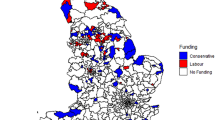Abstract
This historical review of consumer economic boycotts in the 20th century finds that from the early 1900s to the 1970s, consumers at the grassroots level repeatedly launched boycotts in response to price rises for food. What is particularly noteworthy about these protest actions is the important roles assumed by housewives, both as leaders and followers. Also of interest is the ad hoc nature of the boycott efforts and their inability to have more than a temporary remedial effect on the retail pricing practices which prompted the boycott actions. The paper ends with a discussion of the demise of the price-increase boycotts, a discussion which draws heavily on the changing role of American women in the late 20th century.
Zusammenfassung
Ein historischer Rückblick auf Verbraucherboykotte im 20. Jahrhundert zeigt, da\ vom Beginn des Jahrhunderts bis in die 70er Jahre wiederholt Boykotte gegen Preissteigerungen stattgefunden haben, die nicht durch VerbraucherverbÄnde von oben her organisiert, sondern von Verbrauchern an der Basis initiiert und durchgeführt wurden. Besonders auffÄllig ist bei diesen Protestaktionen die herausragende Rolle der Hausfrauen, sowohl in initiierender als auch in teilnehmender Funktion. Bemerkenswert ist auch, da\ die Boykotte eher einen ad hoc-Charakter hatten und lediglich kurzfristige Rücknahmen der Preiserhöhungen bewirkten. Der Beitrag schlie\t mit einer Diskussion zum allmÄhlichen Verschwinden von Boykotten gegen Preiserhöhungen. Zum einen hat das Thema Preiserhöhungen an AktualitÄt eingebü\t; Fragen wie Tierversuche oder UmweltschÄden können heute mehr Engagement bewirken. Zum anderen hat sich die Rolle der Frauen in den letzten Jahrzehnten — nicht zuletzt durch stÄrkere BerufstÄtigkeit — so gewandelt, da\ Frauen für BoykottaktivitÄten nicht mehr so leicht zu motivieren sind wie früher.
Similar content being viewed by others
References
Baxandall, R., Gordon, L., & Reverby, S. (Eds.) (1976).America's working women: A documentary history, 1600 to the present. New York: Random House.
Chase, S., & Schlink, F. (1927).Your money's worth. New York: Macmillan.
Coles, J. V. (1938).The consumer-buyer and the market. New York: Wiley.
Forbes, J. D. (1985). Organizational and political dimensions of consumer pressure groups.Journal of Consumer Policy, 8, 289–302.
Friedman, M. (1971). The 1966 consumer protest as seen by its leaders.Journal of Consumer Affairs, 5, 1–23.
Friedman, M. (1985). Consumer boycotts in the United States, 1970–1980: Contemporary events in historical perspective.Journal of Consumer Affairs, 19, 96–117.
Friedman, M. (1991). Consumer boycotts: A conceptual framework and research agenda.Journal of Social Issues, 47, 149–168.
Garman, E. T. (1993).Consumer economic issues in America (2nd ed.). Houston: Dame Publications.
Gutman, H. (1973). Work, culture, and society in industrializing America, 1815–1919.American Historical Review, 78, 576–577.
Herrmann, R. O. (1970). Consumerism: Its goals, organizations and future.Journal of Marketing, 34(4), 55–60.
Herrmann, R. O. (1991). Participation and leadership in consumer movement organizations.Journal of Social Issues, 47, 119–133.
Hyman, P. (1980). Immigrant women and consumer protest: The New York City kosher meat boycott of 1902.American Jewish History, 70, 91–105.
Jones, B. (1977). Consumers find coffee only as good as next price drop.New York Times, August 17, pp. 29–30.
Jordan, L. (1973). Meat boycott galvanizes consumers.Voice of the Virginia Consumer, May, p. 1.
Kotler, P. (1972). What consumerism means for marketers.Harvard Business Review, 50(3), 48–57.
Kraft, J. (1973). Meat boycott: A lesson in public opinion.Washington Post, April 3, p. A19.
McCarthy, J. D., & Zald, M. N. (1973).The trend of social movements. Morristown, NJ: General Learning Press.
McCarthy, J. D., & Zald, M. N. (1977). Resource mobilization and social movements: A partial theory.American Journal of Sociology, 82, 1212–1240.
Mouat, L. (1977). National boycott on coffee cools.Christian Science Monitor, January 7, p. 4.
Piott, S. L. (1981). Missouri and the Beef Trust: Consumer action and investigation.Missouri Historical Review, 76, 31–52.
Stein, A. (1975). Post-war consumer boycotts.Radical America, 9, 156–161.
Thompson, E. P. (1971). The moral economy of the English crowd in the eighteenth century.Past and Present, 50, 116.
Tilly, C. (1978).From mobilization to revolution. Reading, MA: Addison-Wesley.
Author information
Authors and Affiliations
Rights and permissions
About this article
Cite this article
Friedman, M. American consumer boycotts in response to rising food prices: Housewives' protests at the grassroots level. J Consum Policy 18, 55–72 (1995). https://doi.org/10.1007/BF01018088
Issue Date:
DOI: https://doi.org/10.1007/BF01018088




